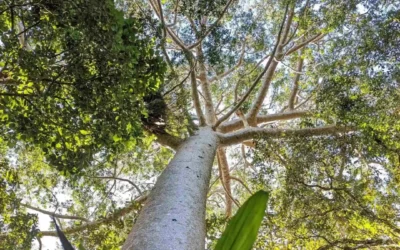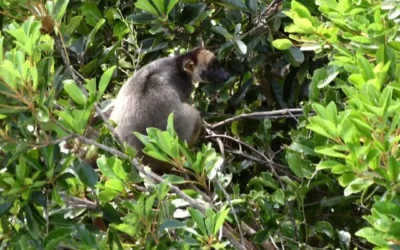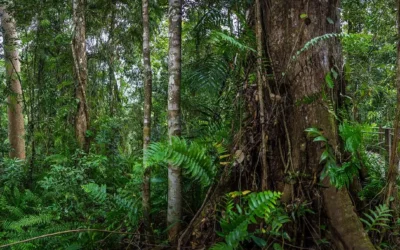Red-bellied Black Snake
The Red-bellied Black Snake is a very common snake all along Australia’s east coast and a frequent visitor to Skyrail’s Red Peak Station.
They are often seen trying to find what little sunlight is available under the dense rainforest canopy.
Red-bellied Black Snakes are one of Australia’s most beautiful and iconic snakes and can grow quite large, up to 2 metres in length. They are glossy black on top and usually bright red underneath. The northern populations of this species however, tend have a more pale pink belly.
Red-bellies are in the family Elapidae, along with 49 other species in Queensland. This family is characterised by the fangs at the front of their jaw that deliver venom to their prey. It is this trait that can make them potentially dangerous. Although the Red-bellied Black Snake is venomous and can be dangerous, they generally have a very shy and calm disposition and are reluctant to bite unless they feel seriously threatened. Like all Elapids, the venom produced by Red-bellies is primarily used to catch and kill prey, not for defence.
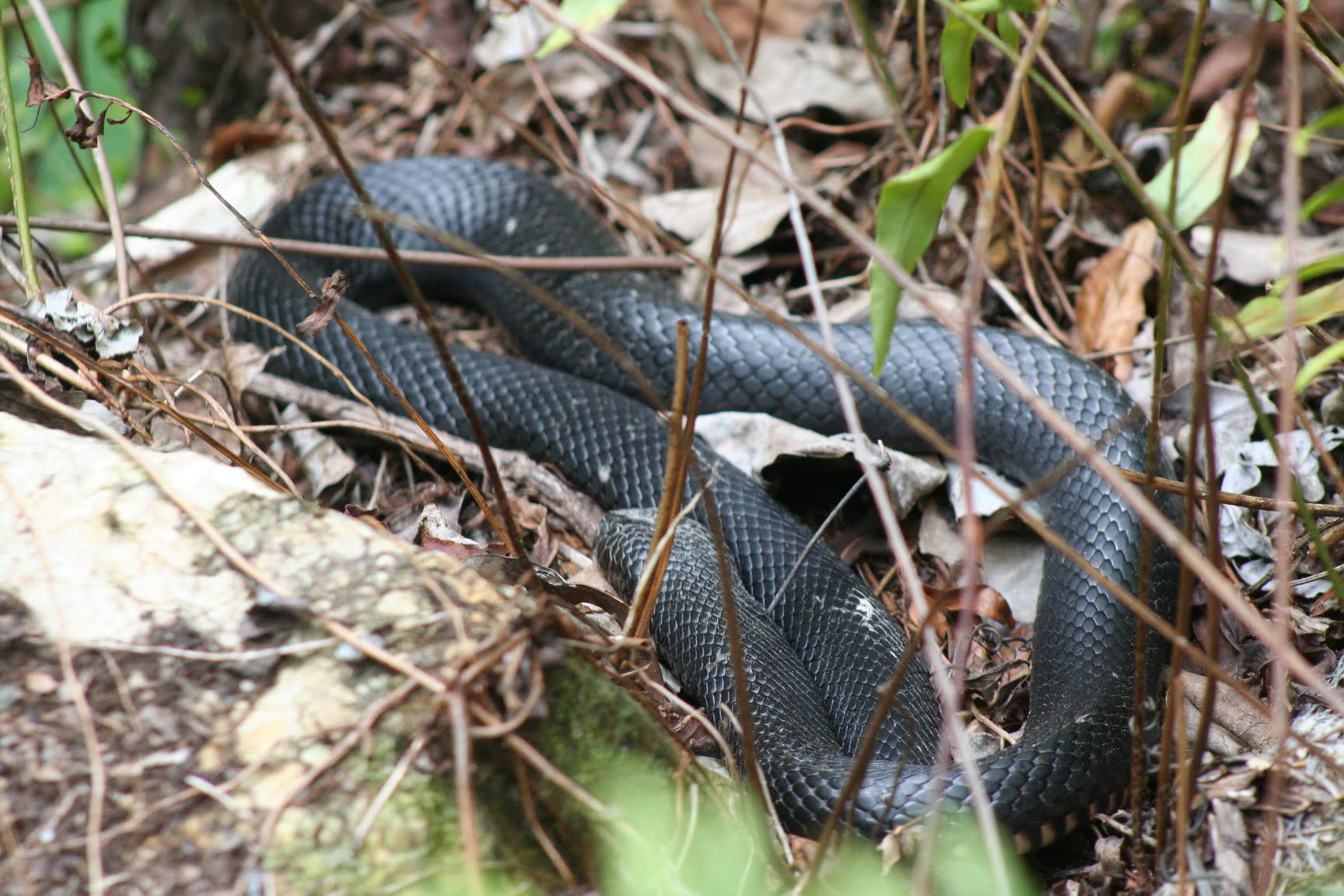
Red Bellied Black Snake at Skyrail Rainforest Cableway. Photo by Tim Hackwood.
Generally their food of choice is frogs but they also prey on small reptiles including other snakes and small mammals.
Interestingly, unlike all the other species in the genus Pseudechis, the Red-bellied Black Snake does not lay eggs. After mating, the females will internally gestate their young for 4-5 months and give birth to 5-18 live young. Towards the end of their pregnancies, females have been observed aggregating in small groups of around 6 to bask together during the day and shelter together at night.
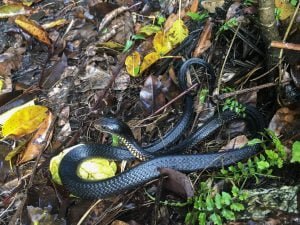
Red Bellied Black Snake at Skyrail Rainforest Cableway. Photo by Tim Hackwood.
Although the Red-bellied Black Snake is still common throughout most of its range, declines in populations have been observed in parts of Queensland and New South Wales. The most likely cause for this decline is the introduction of the Cane Toad (Rhinella marina) to Australia in 1935. Red-bellies easily mistake Cane Toads for their usual prey of frogs. If they ingest the toxins produced by the toads, they will unfortunately be killed.
When you visit the Rainforest with Skyrail, make sure you look down over the edge at the lookout from Red Peak station, there is an old tree stump where our local Red-bellied Black Snake likes to call home.
Keep your distance and if you can’t see him, check with one of our friendly rainforest rangers!.

